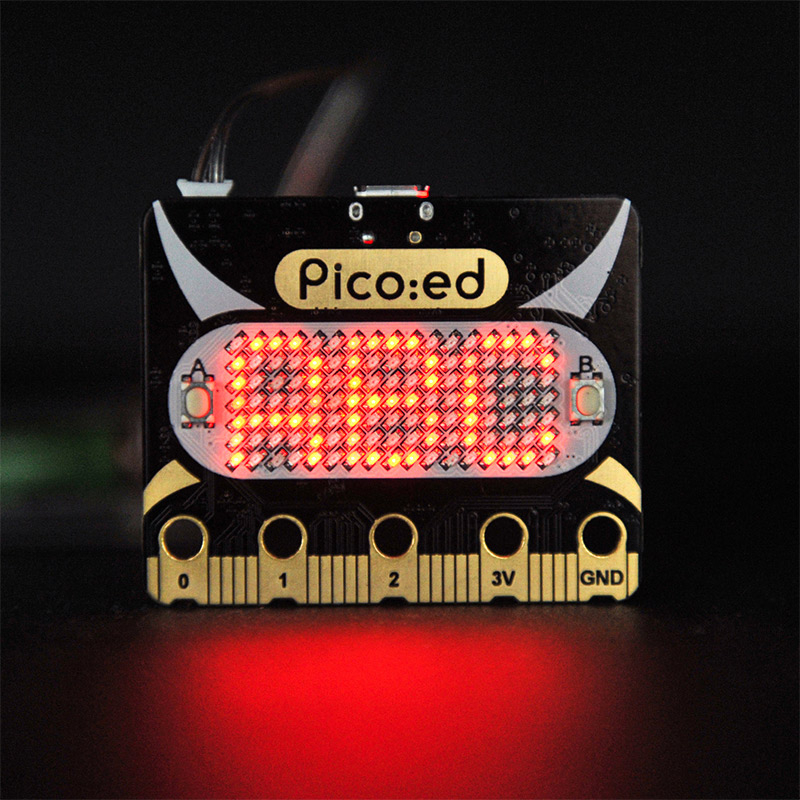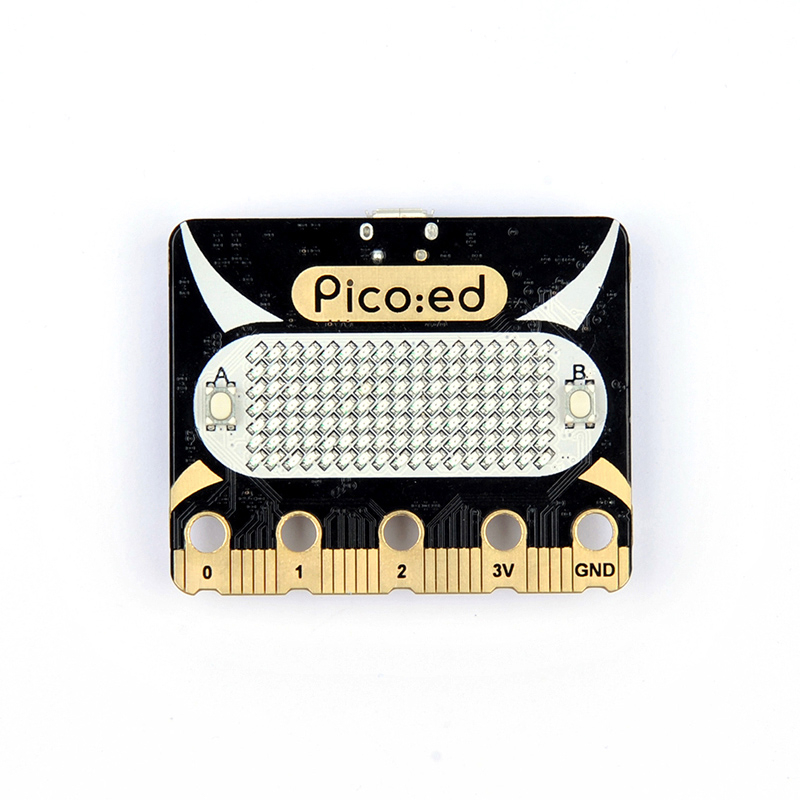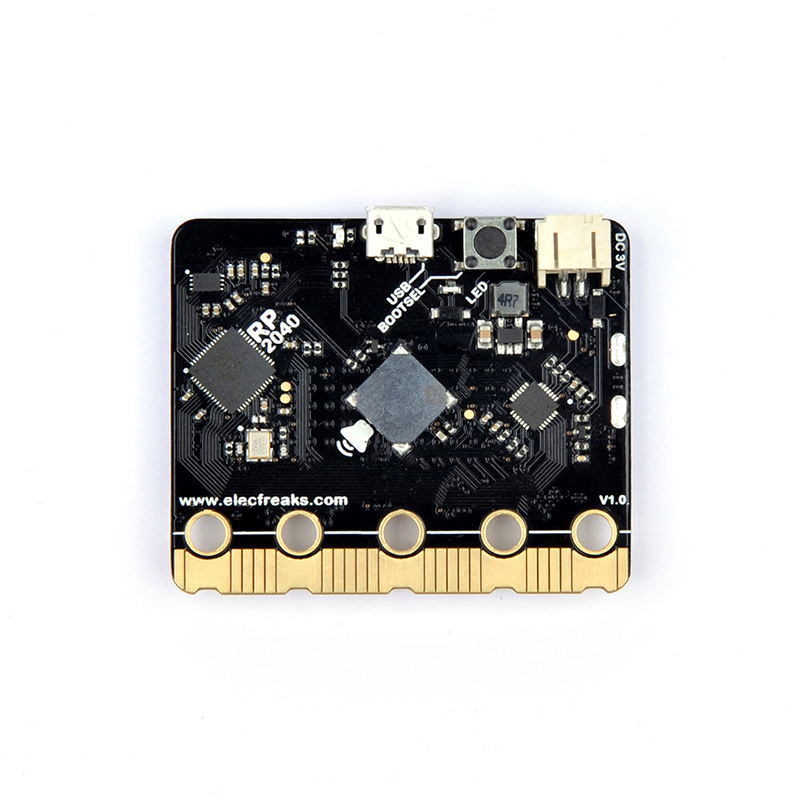Pico:ed Puts RP2040 in Micro:bit Form Factor
A board for learners
With a nod to the micro:bit, the latest board from Elecfreaks, Pico:ed borrows the educational microcontrollers form factor but places Raspberry Pi's RP2040 SoC firm at its heart. The announcement, which comes to us via official Raspberry Pi reseller The Pi Hut, unveils a board which can use accessories designed for the micro:bit, while also retaining compatibility with RP2040 programming languages. If the form factor and the hardware work, Pico:ed could feature in our Best RP2040 Boards guide.



Known as the Pico:ed, the new board comes via Elecfreaks, and fits one of Raspberry Pi’s capable RP2040 chips in place of the v2’s Nordic nRF52833 Arm Cortex-M4 microcontroller. This has the effect of raising the processor speed from 64Mhz to an overclockable 133MHz, the RAM from 128Kb to 264Kb, and the internal flash storage to 2Mb from 512Kb. The board retains the micro:bit’s dimensions (52mm X 42mm, 2in x 1.6in) and weighs just 10g (0.35oz).
The Pico:ed contains a larger LED matrix than its predecessor, a 7x17 grid of 119 lights, and has a buzzer, plus two built-in buttons. By retaining the Micro:bit’s edge connector and MicroPython language, it should be compatible (with just a tweak to your code) with existing micro:bit accessories, which include ultrasonic distance sensors and air-quality sensors as well as more advanced robotics. What is missing from Pico:ed compared to the micro:bit is radio / Bluetooth. On both models of micro:bit there is a basic radio module capable of transmitting data between multiple micro:bits and for basic Bluetooth communication.
Creator Elecfreaks already has sample projects and technical files available on its website, and it should be straightforward to adapt existing micro:bit projects to the new microcontroller if needed. What will be more fun is converting RP2040 projects to the new board, and getting them into the hands of anyone eager to learn the basics of electronics and coding.
Curiously, the Pico:ed is also cheaper than the micro:bit, with a v2.2 board costing $15.41 at The Pi Hut as we write, while the Pico:ed undercuts it at $13.35, and is only $12.90 from the Elecfreaks store. The good news is it appears to be in stock. For now. Tom's Hardware has secured a unit for review.
Get Tom's Hardware's best news and in-depth reviews, straight to your inbox.

Ian Evenden is a UK-based news writer for Tom’s Hardware US. He’ll write about anything, but stories about Raspberry Pi and DIY robots seem to find their way to him.